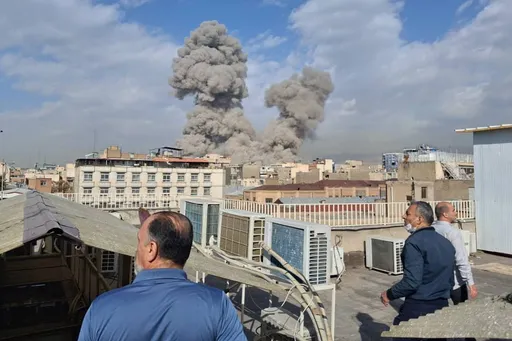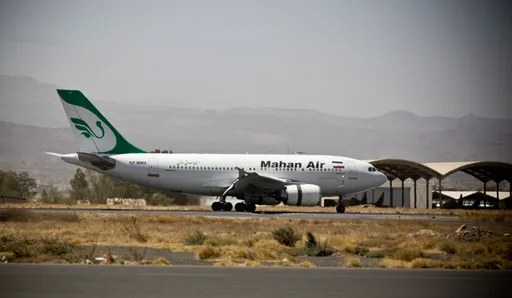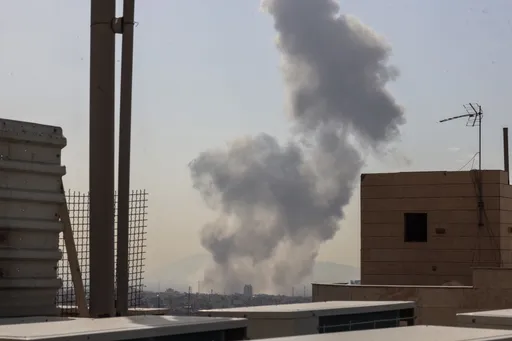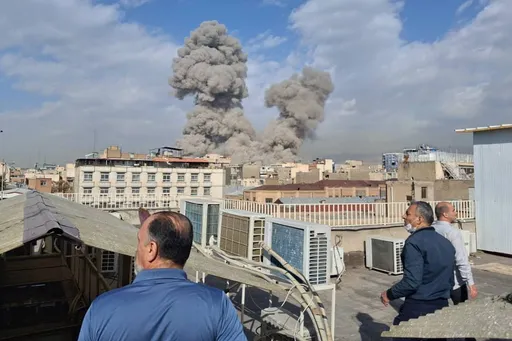The grisly ambush of Jamal Khashoggi a year ago in the Saudi consulate in Istanbul serves as a poignant reminder of two other deaths and the apathy of the Trump administration.
First, the op-ed is a powerful means of speaking truth to power. The anniversary of Khashoggi’s death coincides with the recent passing of ambassador Joseph C. Wilson, who wrote an op-ed in the summer of 2003 undermining the Bush administration’s justification of the Iraq War.
Second, Khashoggi’s execution serves as a reminder of the other Saudi victims executed by the monarchy, such as Nimr al Nimr, a Saudi cleric who died in January 2016. Like Khashoggi, both were critics of the royal family.
Third, the Trump administration's reluctance to hold the Saudi monarchy accountable for Khashoggi’s assassination demonstrates how the White House prioritised arms sales over defending freedom of speech.
The Power of the op-ed
In 2003 both Khashoggi and Wilson suffered repercussions for writing an op-ed. In that year Khashoggi published an article in the Saudi newspaper Al-Watan, titled “The individual and the homeland are more important than Ibn Taymiyya,” referring the 14th-century ultra-orthodox Syrian cleric.
Khashoggi was fired from the paper as Ibn Taymiyya is considered the theological forefather of Saudi Arabia’s Wahhabi interpretation of Islam.
In July of that year, Wilson published an op-ed in The New York Times titled “What I Didn’t Find in Africa.” Based on Wilson’s trip to Niger in 2002 his article argued that the African nation had not sold uranium yellowcake to Iraq, as the Bush administration alleged.
Wilson’s wife Valeria Plame suffered as a result of the op-ed as member of the Bush administration outed her as an undercover CIA operative, and Wilson was hounded after the article, deemed a traitor by Bush loyalists.
After his self-imposed exile, Khashoggi went on to become a semi-regular columnist for the Washington Post, where he often criticised Saudi Crown Prince Mohammed bin Salman and the crippling air campaign he initiated in Yemen.
Both Wilson and Khashoggi suffered as a result of expressing the right to freedom of expression to criticise wars. Both the 2003 intervention in Iraq and the 2015 intervention in Yemen were not wars of necessity but wars of choice. The op-ed let both of them hold the leaders accountable, revealing the folly and hubris of their foreign policy ventures.
Saudi executions of domestic critics
The fate of both Khashoggi and Nimr al Nimr demonstrated the harsh penalties meted out on those who merely expressed criticisms of the monarchy, not calls for its overthrow. Their deaths, as well the number of arrests of Saudi female activists, continue to underline the repressive nature of the monarchy despite the Kingdom’s attempt to portray itself as on the path of reform.
The Saudi state-sponsored Vision 2030 modernisation plan seeks to woo Western leaders and investors. Hala Al Dosari, a Saudi dissident and the first Jamal Khashoggi Fellow at the Washington Post writes: “In reality, however, it has simply institutionalised a centuries-old monarchic legacy of violence, disenfranchisement and repression.”
“Disenfranchisement” encapsulates the fate of Saudi women, liberals and minorities, including the Saudi Shia, who live primarily in its oil-rich Eastern Province but do not benefit from the largesse of the oil revenues. It was because Sheikh Nimr emerged as a figurehead of the anti-government protests there in 2011 that he was executed.
The Trump administration’s indifference
US intelligence agencies have determined that bin Salman had direct knowledge of the mission to target Khashoggi. Nonetheless, not only did Trump defend Salman’s innocence but helped rehabilitate the crown prince’s image on the world stage.
Trump did not even hide the fact that he prioritised Saudi arms contracts and direct economic investments, in addition to the monarchy’s promise to invest in the Rust Belt swing the US president needs to win reelection. Saudi officials continue to spend millions of dollars staying in Trump’s hotels.
Trump has placed financial interests with Saudi Arabia ahead of a principled moral stand of defending both freedom speech, and Khashoggi himself, who had US residency status at the time.
The Turkish newspaper the Daily Sabah released a transcript of the executors’ deliberations to kill Khashoggi and finally his last words: “Do not keep my mouth closed,” he said to the hit squad. “You’ll suffocate me.”
Before his death, neither Nimr’s execution nor the countless Yemeni deaths as a result of the Saudi air campaign had focused global attention on the marginalised or victimised as a result of the monarchy’s policies.
While in Khashoggi’s last-minute he was suffocated with a plastic bag, his killers failed to keep his “mouth closed,” or stifle his voice for that matter. His death brought the world’s attention not only to this man’s death but both the Yemenis and Saudis suffering during the MBS regency.























